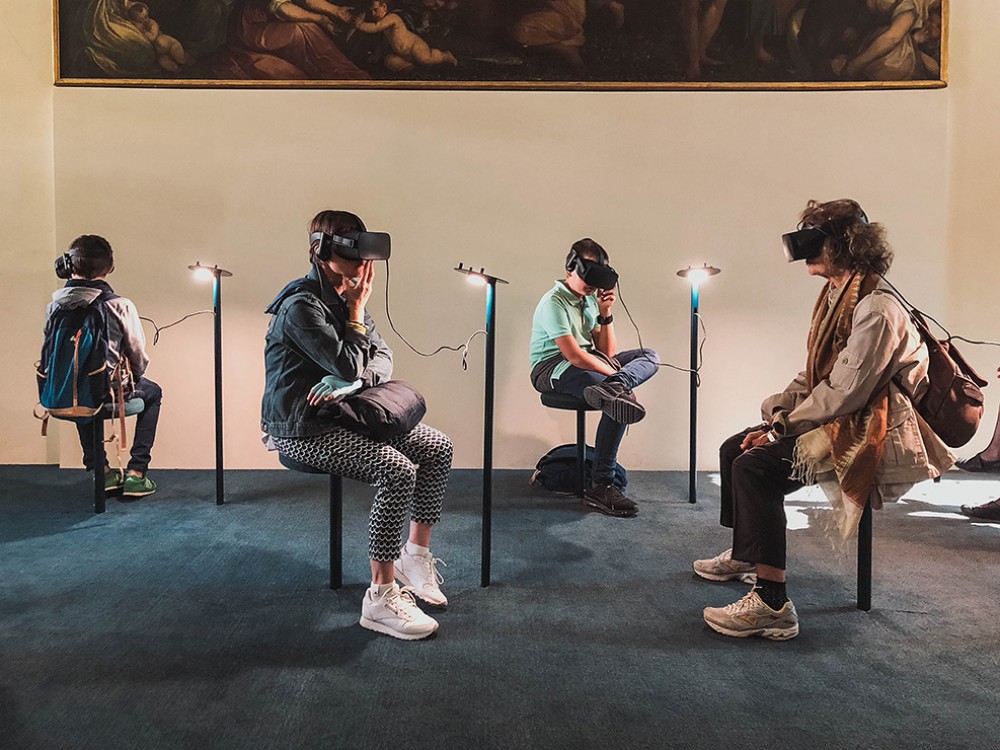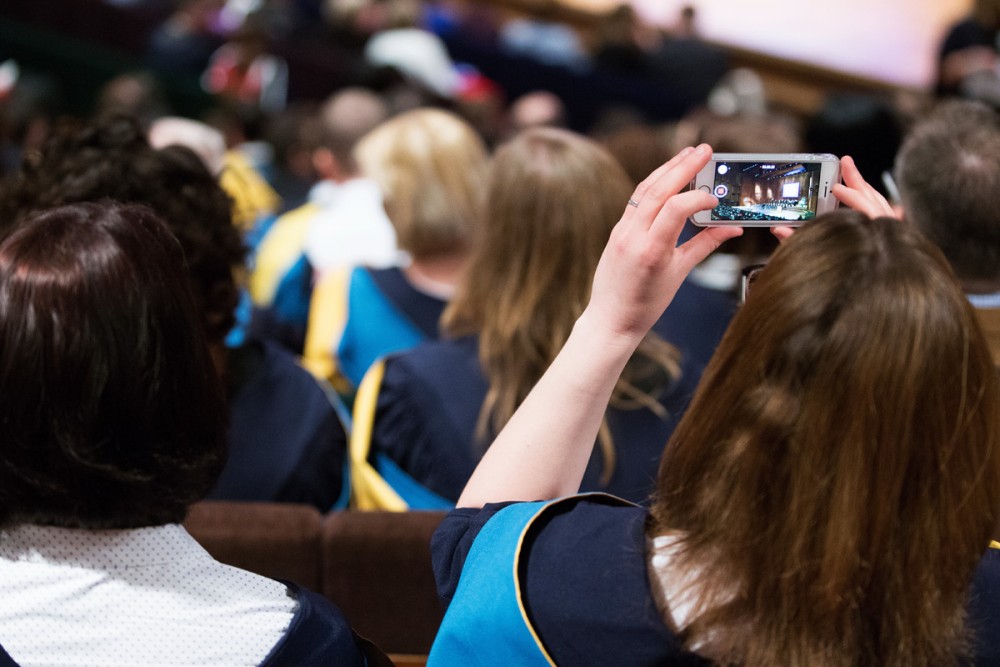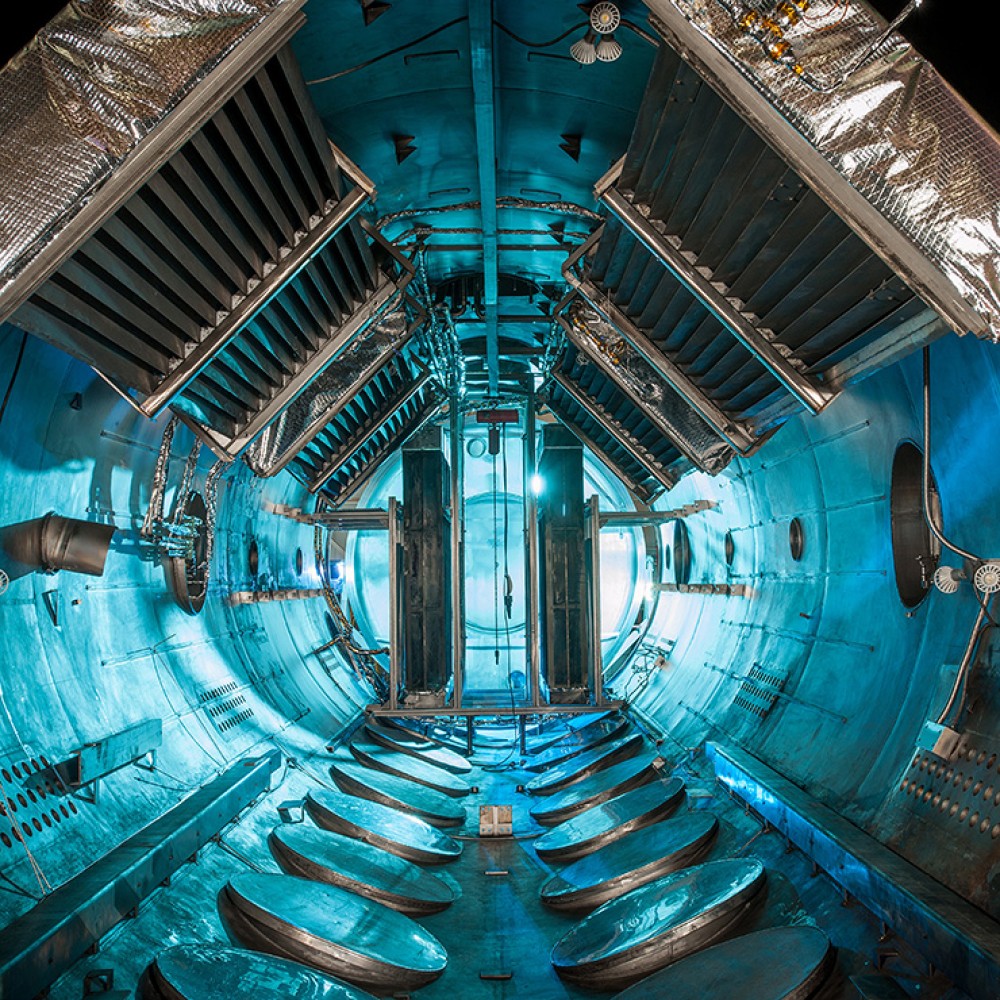Last year, to celebrate the University’s 50th year, we shared OU academics’ exciting predictions for how learning could change over the next fifty years.
In our Future of Learning report our experts explained how artificial intelligence could become a part of everyday life for students in 2070 and how picking up new skills in the future could become far quicker thanks to brain-to-brain learning.
Now it’s your turn! As part of last year’s Open Door magazine, we asked our alumni community to share their predictions. Thank you for sending in so many fantastically creative entries! Here are just a few of our favourites...

‘Holographic tutors and virtual reality’
by Pamela, featured in issue 17 of Open Door magazine
Fifty years ago, distance learning was introduced to make education available to everyone whatever their circumstances and ability. Since then the world has seen a huge advance in technology, which has enabled people all over the world to benefit from its advances.
In the future, learning will be tailored to suit each individual’s needs by using virtual reality programmed for specific subjects. Holograms of tutors will be able to teach and, in the case of scientific subjects, demonstrate experiments enabling the student to understand and know exactly what is required of them. They will then be able to physically demonstrate their understanding by sending their own hologram back to the tutor.
Interaction with tutors and other students is, of course, essential and will be achieved by linking up online on a regular basis.
Video games which, at the moment, are used for pleasure, will also be used and will be specifically designed so that students, while playing a game are also learning, using intricate programmes designed to educate students to the utmost level. Virtual reality will assist them, therefore, in experiencing the full understanding of these lectures.
To make sure that students in other countries across the world have unlimited access with no language barriers there will be instantaneous translations of lectures so that everyone will receive the maximum benefit.
Education in the future will truly be a global affair designed to give everyone the ability to think for themselves and so improve the world as a whole.
‘Degrees will be downloaded’
By David
I believe that in the next 50 years degrees will be gained by inserting a chip in the brain and the people will choose the degree(s) they want. This will happen at the University/hospital. This will take a matter of days and the graduate will be ready to be employed. Induction into employment and continuous professional development will be acquired in this way too. So, to will vocational qualifications at degree level. Different universities will still exist competing with each other to offer highest standards of degree and they will offer franchises to appropriate abroad institutions.
As the employment market changes new degrees/qualifications can be acquired in the same way to meet changing demand. Even medical degrees can be acquired in this shorter way with the experience of junior doctors in incorporated into the chip; pilots training in simulators can be used to teach surgeons to carry out operations.
The time saved will result in low cost of higher education, increase productivity and enhanced GDP. Work and leisure can change for the better.

‘Students will have more choice than ever before’
By Linda
Innovation begins with a vision. Mine is choice. I see the traditional full-time university degree course becoming niche rather than mainstream, with the majority of students choosing to earn while they learn. Modular courses via media options, combined with short residential courses offer an attractive alternative to student debt. In fifty years, integrated lifelong learning could replace the current ‘school-uni-graduate-job done’ approach to education. In fast developing science, technology and medicine, those who want to keep up must continue to study.
I predict that virtual reality will become a standard educational tool, as well as a way of experiencing that which is out of reach. Primary school children will be able to walk on the moon, explore deep ocean trenches or dock a shuttle with the space station without leaving home.
The domestic information hub will also evolve, able to access educational material and discuss topics with its owner, and perhaps perform assessments. From simple beginnings it will evolve. Like the mobile phone it will become smaller, more portable and provide a greater diversity of services, such as playing chess and scrabble with its owner and a variety of children’s’ games – an eclectic and indispensable family asset.
Artificial intelligence has its place as a resource, but it must remain our servant. The potential for abuse by commercial operators is considerable, in psychological marketing and promotion of gambling and addictive gaming. We must develop the wisdom and discernment to use our creations well.
‘Nanotechnology and teaching bots will be the norm’
By Helen
Lancelot was in trouble again. Having developed a computer virus that had cause serious problems to the health of the academy’s automated admin systems, he was to be punished. He followed the prefect bot down a windowless silver tube that led to the rarely used, ‘isolation’ area.
It was his first visit. On the way he passed pods where his fellow students were expanding their learning.
The nanotechnology pod was a favourite of his. He enjoyed turning his inventive mind to the creation of devices on a molecular scale. He, and his friend Gawain, had done very well in last year’s Nanobotics Challenge.
Next, he trudged past the ‘Interpretation’ pod. This was not a pleasant place for him, focusing, as it did, on how true or relevant internet ‘information’ was. He preferred to just accept what his earpiece told him without question. The bot-monitor had nearly giga-flopped at his laziness. It had sent a bone conducted message to his brain that nothing found on the WWW could be accepted without research. If the bot-monitor could have it would have sighed.
Next, they passed the VR pod, where thousands of students moved in worlds that only they were experiencing at that moment in time. Alone, but surrounded by potential millions, they experience History, Science, Geography and a host of other skill sets and subjects. Lancelot reflected that, once in VR pod, deep down you knew you were safe, but it was still terrifying to be a member of Wellington’s ‘Scum of the Earth’ or to be inside a volcano as it erupted.
Lancelot was pleased to see the end of the tube. The prefect-bot bumped gently against a touch sensitive circle and the tube around them dissolved. A probe touched Lancelot’s cheekbone, and sent the bone conducted message that this was to be the area of punishment. He would spend one hour ‘outside’! The bot retreated and Lancelot advanced. The tube closed, leaving him isolated.
One hour later the bot returned and collected Lance. It, being gifted with AI plus empathy, communicated a query as to how Lancelot had found the experience. Lancelot had his answer ready; ‘The graphics were amazing, but the interactions were really boring.'

